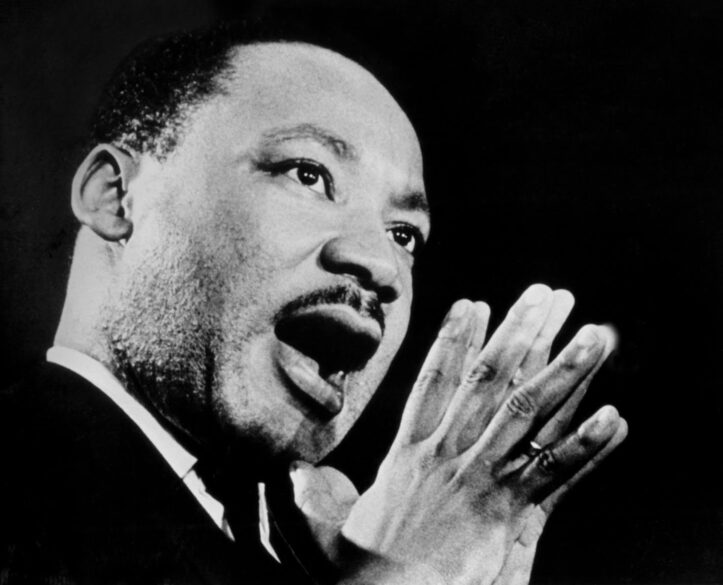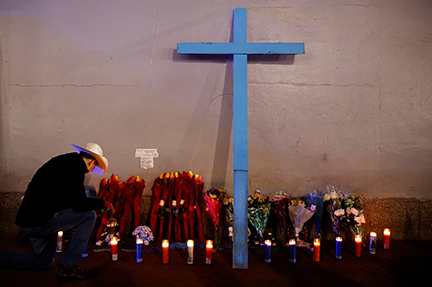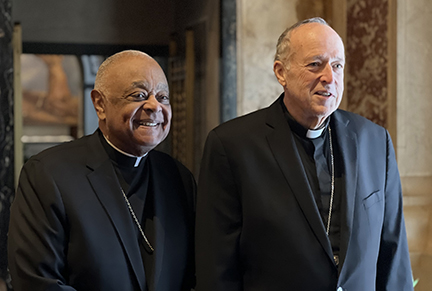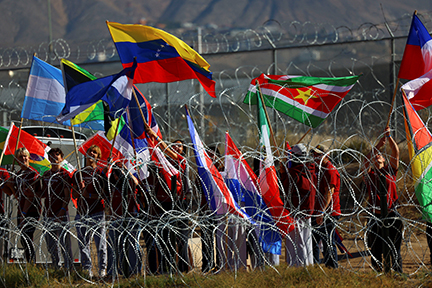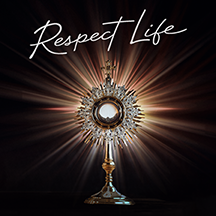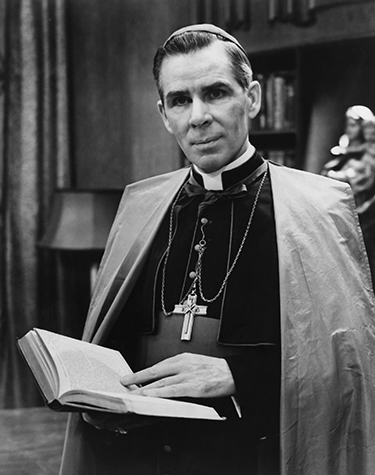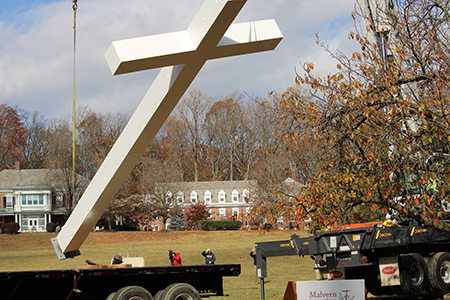By Gina Christian
(OSV News) – A new report confirms OSV News’ previous finding that U.S. Catholic dioceses and eparchies have paid more than $5 billion to settle abuse claims filed over the past two decades — but credible allegations have declined significantly over the same period, with the majority of cases preceding a landmark set of anti-abuse protocols established by the U.S. bishops in 2002.
Catholic dioceses, eparchies and parishes in the U.S. have “changed how they do things” in terms of addressing and preventing abuse, said Jonathan L. Wiggins, sociologist and director of parish surveys at the Center for Applied Research in the Apostolate at Georgetown University.
On Jan. 15, CARA – which conducts social scientific studies on the Catholic Church — released a 20-year summary of annual data for the U.S. Conference of Catholic Bishops’ yearly report on the implementation of the “Charter for the Protection of Children and Young People.”
The document – adopted by the USCCB in 2002, and commonly called the Dallas Charter — lays out a comprehensive set of procedures for addressing allegations of sexual abuse of minors by Catholic clergy. The charter also includes guidelines for reconciliation, healing, accountability and prevention of abuse.
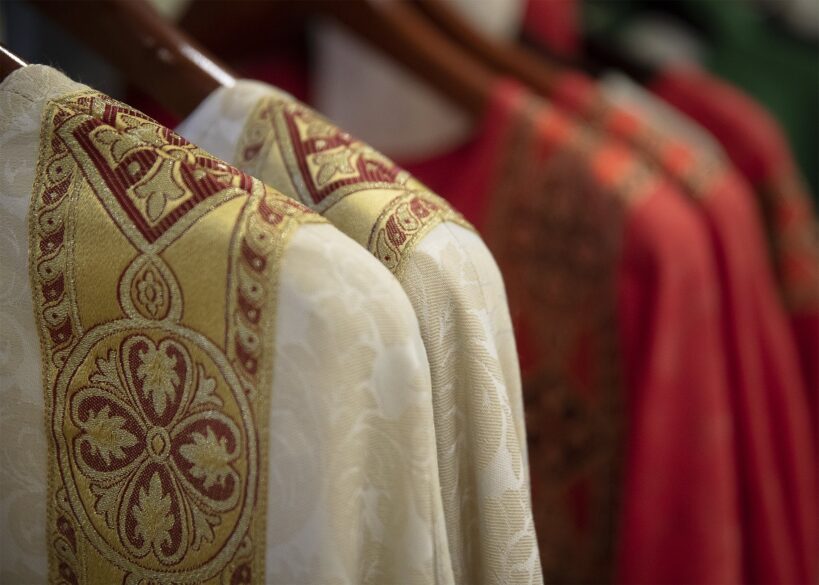
CARA’s two-decade review of the numbers indicates that the charter is working, and that the Catholic Church in the U.S. is making real progress in eradicating the scourge of clerical abuse, said Wiggins.
Since 2004, CARA has collected and prepared data for the USCCB on the charter’s implementation, using both web-based and mail-in surveys.
The CARA surveys complement the annual audit of dioceses and eparchies conducted by a USCCB-commissioned third-party firm, which since 2011 has been StoneBridge Business Partners, a Rochester, New York-based consulting firm that provides forensic and compliance services to a range of organizations. (Religious communities of men do not participate in the Dallas Charter audit process, but many instead seek separate accreditation for commonly accepted abuse prevention and protocols.)
Response rates for CARA’s voluntary annual surveys have averaged 99% for dioceses and eparchies and 72% for religious communities of men, according to the CARA summary report. Wiggins noted to OSV News that the Conference of Major Superiors of Men has “worked very hard to encourage their members to participate” in the annual CARA surveys, but stressed that the conference was a “voluntary collective” that could not compel such participation.
Catholic dioceses and parishes in the U.S. have “completely reformed how they recruit people, how they report,” Wiggins said. “They’ve made a public invitation to bring allegations (forward). They do background checks on everyone, not just at the diocesan level but in parishes. They train people about sex abuse.”
According to the report, dioceses, eparchies and religious communities spent a total of almost $728 million over the past 20 years in safe environment salaries, training programs and background checks. Those costs increased 80% over the span of the report period.
Wiggins described the shift in approach as “quite amazing” – and a “story that doesn’t get out” unless the data is viewed longitudinally, and in a national context, rather than simply through media coverage of a given diocesan abuse settlement.
“Sometimes the headlines make it sound like everyone’s having a whole lot of allegations all the time,” he said.
For the period 2004-2023, a total of 16,276 allegations of minors by priests, deacons and religious were deemed credible by dioceses, eparchies and religious communities in the U.S. — 82% by dioceses and eparchies, and 18% by religious orders.
An allegation, defined as “one victim alleging an act or acts of abuse by one alleged perpetrator,” can represent “a single assault or for a series of assaults on a single victim over many years,” the report said.
But, CARA stressed, “to be clear, these credible allegations of abusive behaviors did not occur over the 20 years of the survey, but rather over the more than 80 years asked about on the annual surveys.”
During the 20-year survey period, said the report, “a majority of dioceses, eparchies, and religious communities of men did not have a credible allegation, with an average of three in five (60%) having no allegations in a particular survey year.”
The summary report said that “more than nine in ten of all credible allegations occurred or began in 1989 or earlier (92%), 5% occurred or began in the 1990s, and 3% occurred or began since the year 2000.”
Most of the alleged perpetrators – 86% – “were identified as ‘deceased, already removed from ministry, already laicized, or missing,'” said the report.
That figure is “not surprising,” said CARA in its Jan. 15 media release, “as about seven-tenths (72%) of the alleged abuses occurred in 1979 or earlier, 20 to 50 years before the first CARA survey was conducted in 2004.”
The other 14% were “permanently removed from ministry or retired from ministry during the year” of that particular survey, said the report.
The report also found that 95% of the alleged abusers were priests, with 80% diocesan and 15% religious, while 4% were religious brothers and 1% were diocesan or religious deacons.
The majority of abuse victims (80%) were male, and over half (56%) were ages 10-14 at the start of the abuse, with 24% ages 15-17 and 20% age 9 or less.
The report did not speculate on possible factors behind the demographics of alleged abusers and their victims, and Wiggins told OSV News such considerations were beyond the scope of study.
However, according to research cited by RAINN (Rape, Abuse and Incest National Network), which operates the National Sexual Assault Hotline (800-656-HOPE), a majority of child abuse perpetrators (88%) are male.
Wiggins also highlighted the methodological adaptations he and his fellow researchers have had to make over the years as the clerical abuse scandals have unfolded.
One such adaptation was the 2016 addition of a new survey classification for claims: “unable to be proven.”
While “credible” and “unsubstantiated” allegations are deemed as such based on evidence gathered through an investigation, CARA began listing the “unable to be proven” category to capture those claims for which “limited information was known and a thorough preliminary investigation was unable to occur.” The reasons for the lack of information include: deceased parties in a given allegation, as well as restrictions due to court actions and state investigations.
In all three categories – credible, unsubstantiated and unable to be proven — claims may or may not have been paid out in a settlement, the report noted.
With the addition of the “unable to be proven” category in 2016, “the proportion of allegations deemed credible by dioceses, eparchies, and religious communities of men has decreased from 82% to 54%,” said the report.
At the same time, Wiggins cautioned that there is generally a considerable span of time between the commission of abuse and its actual disclosure – a gap that could impact future data.
Regarding the 3% of credible allegations since 2000, Wiggins said that incidents of abuse “happening right now may not come to light for another decade or so. We can’t say, ‘Oh, only 3% are happening now.’ We can only say, ‘Only 3% are being reported now.'”
While continued vigilance against abuse will remain crucial, Wiggins expressed optimism about the progress made so far.
“It’s not easy for an organization like the Catholic Church to make a big change, (but) they’ve really changed how they do things, fundamentally,” he said. “And of course they couldn’t turn on a dime, but they really have made the changes.”
Gina Christian is a multimedia reporter for OSV News. Follow her on X @GinaJesseReina.

